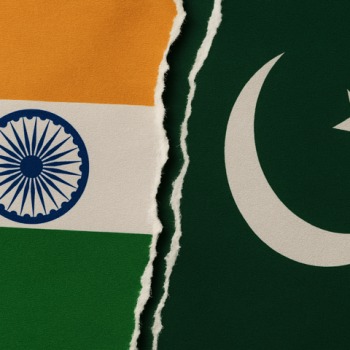By Saima G. Sheikh
Follow Saima on Twitter @SaimaGSheikh
In a recent interview someone brought up the issue that Muslim women are not treated equally under Islamic Shariah law. Their analysis is on the basis of what they have seen in Muslim majority countries such as Saudi Arabia. Saudi Arabia doesn’t speak for Muslims nor did the Holy Quran or Prophet Muhammad appoint Saudi Arabia as the final say in Islamic law. The status of women or any Islamic law is based on the Holy Quran.
At the time of the advent of Islam, women had very few rights not only in Arabia, but everywhere in the world. They had no real status in society. They could neither own nor inherit property, and were given little or no education. They had no say in religious matters and were regarded as being limited in spirituality and intellect. The Holy Quran put an end to this inequality and granted women spiritual, intellectual, economic, and social rights equal if not more than men. This is a vast subject and I’m going to present few examples from the Quran and sayings of Prophet Muhammad.
1. Spiritual Status
God has clearly declared in the Holy Quran that a woman has a soul, that she has the same spiritual capacity as a man, and that she can attain equal spiritual rewards by her own efforts. The Quran says, “But whoso does good works, whether male or female, and is a believer, such shall enter heaven…” (4:125) and “And sets forth as an example Mary…who guarded her chastity…and she was one of the obedient.” (66:13)
These verses of the Holy Quran are addressed to both men & women. The obedience of Mary, mother of Jesus has been mentioned as an example for believers (both men and women) to aspire spiritually. Even, Prophet Muhammad encouraged his wives to seek knowledge and once stated that “half the religion of Islam could be learned from Ayesha (his wife).” Indeed, after his death, the advice of his wives was sought by the entire Muslim community.
2. Education Rights
Islam provided women equal opportunity to gain knowledge some 1400 years ago, but the women in the United States were not provided this right fully until 1977 when Title IX of the Education Codes of the Higher Education Act Amendment was enacted. Before this law, the right to learn was a valiant struggle waged by many tenacious women—over many years and across cultures—in our country.
Islam stresses that education for men and women is of equal importance, and the Prophet Muhammad laid down that education is compulsory for both. He said that, “It is the duty of every Muslim man and every Muslim woman to acquire knowledge.” (Ibni Mājah)
The Quran 20:115 teaches us a short prayer which simply says: “O my Lord, increase me in knowledge.” This verse and the Hadith of Prophet Muhammad doesn’t differentiate between a man and a woman. Apparently, extremist organizations like Boko Haram, Taliban, and Al Qaeda have forgotten this.
3. Economic Rights
Islam entitled women to possess wealth and property, whether it is inherited or earned, and has full rights over it. The Holy Qur’an 4:33 states, “Men shall have the share of what they have earned, and women shall have the share of what they have earned…” This verse makes it clear that a woman has the right to manage her own wealth. A married working woman isn’t required to share her income with her husband. On the contrary, Islam makes it an obligation on a husband to provide for his wife and family.
Muslim women are entitled to inherit property as a mother, wife, daughter or sister. The Qur’an 4:8 makes it clear that, “For men there is a share of that which parents and near relatives leave, and for women there is a share of that which parents and near relatives leave, whether it be a little or much — a determined share.”
Islam gave women spiritual, educational, economic and social rights. However, misconceptions about the role and status of women in Islam are still very prevalent in the Western world. It is despicable that leaders of Muslim countries who claim that they are upholding the teachings of Islam are not following its true teachings and are denying Muslim women rights afforded to them in the Holy Quran and by Prophet Muhammad some 1400 years ago.
Follow Saima on Twitter @SaimaGSheikh












